
Chinese is a tough language to learn, but its four-tone complexity pales in comparison to the nuances of the nation’s customs, traditions, and faux pas. These etiquette rules can be so subtle that newcomers to the Middle Kingdom often fumble them with complete oblivion. What’s more, some of China’s most time-honored gestures can seem offensive to newbies when in fact the opposite effect was intended.
“Don’t be afraid if your host puts pieces of food on your plate or bowl. This is a sign of politeness in Chinese culture,” says Ged Scheuber, general manager of Culture Yard, a Dongcheng-based center that offers courses in Mandarin, calligraphy, and a variety of other activities.
Many of the country’s most important etiquette rules revolve like most things Chinese around the dinner table. “The Chinese love good food, so everything to do with dining etiquette is definitely worth knowing about,” says Scheuber.
Those doting local hosts have numerous customs, according to Ines Brunn, owner of fixed-gear bicycle store Natooke. During a recent dinner with Chinese friends, she was surprised by the star power of one of her fellow guests: Dashan, a famous Canadian expat beloved by locals for his mastery of “cross talk,” dubbed the traditional “art of Chinese comedic language.” Brunn says the TV host is a role model for expats looking to gain a deeper understanding of Chinese culture, and she was pleased to see his etiquette in action not only as dinner was being served, but also as bottles of baijiu were being poured.
“I was so happy to already know some of the drinking customs – to not pour for yourself, to pour for others that you respect, to hold my glass lower when I’m ‘cheersing’ someone I respect,” she says. She adds that her cultural knowledge has come a long way over the years, though it pales in comparison to the famed TV host’s.
“I used to be shocked by a lot of dinner etiquette, like the fact that it’s considered dirty to blow your nose and put the napkin on the table, and yet it’s fine to hawk phlegm and spit on the floor,” she says with a laugh. But other traditions still beguile her: “I know that the ‘boss’ or the most honored guest should sit facing the door, but I never know where to sit myself. So I often wait and let my host direct me to my chair rather than being rude and presumptuous with that hierarchy.”
Guan Jie, a retired accountant and avid socialite who befriended some of Culture Yard’s employees over numerous dinners, agrees that Chinese seating arrangements can be complex. However, the basics are simple.
“Wait for the oldest people at the table to sit first, and don’t start eating before they do,” says Guan, adding that those elders will be very appreciative of foreigners who attempt to take note of those nuances. There is one faux pas above all others that expats should be careful to avoid: “Do not pick up any food from the dishes, then change your mind and put it back. That is considered very sloppy and rude.”
Scheuber says that one of the most confusing aspects of Chinese etiquette has nothing to do with grub, and everything to do with gifts
“I still find it strange that if you give someone a gift, they will never open it in front of you, which I would generally consider quite rude at home,” says Scheuber, adding that his Mandarin speaking pals often make up for such oddities with other overly gracious gestures. “I am a fan of the Chinese etiquette related to ‘picking people up’ from the airport/station etc. Even if you would much prefer to be independent and take the train or a bus or you don’t want to bother anyone to pick you up, close Chinese friends will still insist on coming to get you.”
Yining Zhao, who teaches Chinese language and culture at Culture Yard, adds that such warmth can often be limited to practicalities like pickups or logistics – at least in public.
“Chinese people tend to have more reserved views on public displays of affection,” says Zhao with a laugh. “A number of times, I’ve been in funny situations where I wanted to shake a foreigner’s hand but they preferred to go for a hug or a kiss on the cheek, and we ended up in a kind of weird, embarrassing greeting dance where both of us felt uncomfortable.”
All the chuckling and blushing aside, Scheuber says that locals practically expect expats to bungle a few traditions. There is little chance that any slipups will become contentious. “China is a lot more forgiving than some other Asian cultures in this respect and there are very few etiquette mistakes that would genuinely upset or offend a Chinese native,” he explains.
“That said, we are impressed when foreigners learn and master Chinese etiquette rules,” says Zhao. “It will not go unnoticed if you do!”
In order to help you exceed the expectations of your Chinese hosts, Scheuber and Zhao outline on the next page more colorful examples of local etiquette that span a spectrum of experiences.
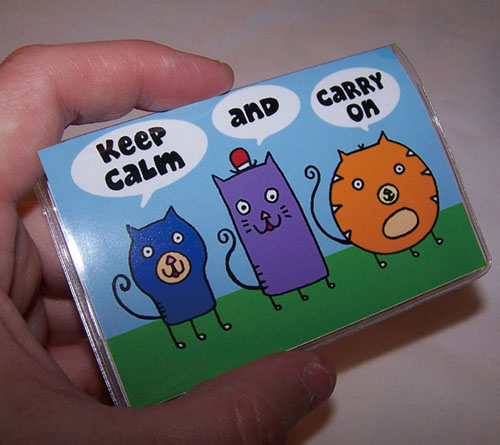
The Name Game
Scheuber: In China, business or calling cards are often called “name cards,” which is a direct translation of the Chinese mingpian. When exchanging these, be sure to hand out and receive cards with both hands. This shows respect, which is particularly important at the start of a relationship. The two hands rule is also a polite way to exchange anything else you might present to another person, such as presents or money.
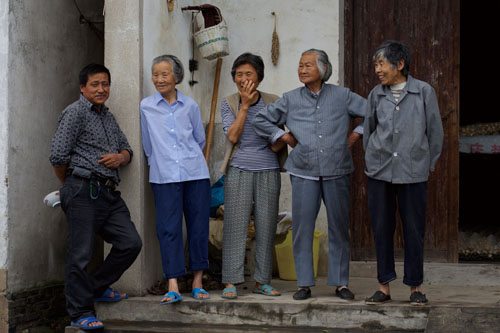
That’s My Title, Don’t Wear It Out
Zhao: In business, it’s appropriate to refer to people by a combination of their family name and job title, so if someone is a manager and their last name is Zhang, you would address them as Manager Zhang. If that person was a teacher, they would be called Teacher Zhang. Personal acquaintances are often referred to as “auntie,” “uncle,” “brother,” or “sister.” However, determining exactly when and to whom these honorifics apply can often be a confusing exercise; when in doubt, ask a Chinese friend.

The All-Mighty KTV
Scheuber: KTV (or karaoke) is a staple of the Chinese social scene to be shared with friends, acquaintances, or business partners – no matter how bad your singing. Among colleagues, the most senior person in the room should kick off the singing. Locals take this very seriously, so do not snicker or laugh. Also, give others a chance to sing or you might become known as the mic hogger (麦霸, maiba).
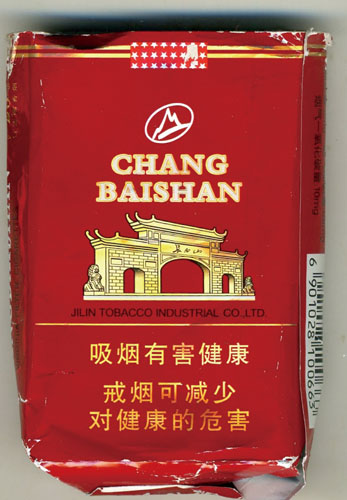
Lighting Up and Butting Out
Scheuber: If someone is smoking, they will offer you a cigarette. However, these days fewer younger people smoke and it’s perfectly acceptable to refuse with a polite “no thanks.” If you’re smoking, it’s particularly polite to offer a cigarette to someone older than you.
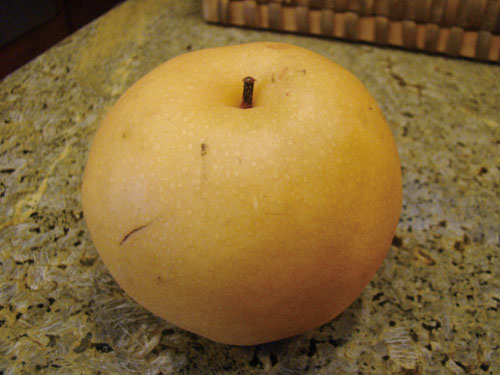
Sharing Ain’t Caring
Scheuber: This one might seem strange: Chinese people will generally not share a pear and pears should not be given as gifts, particularly to a couple. That’s because the phrase “to share a pear” in Chinese is a homonym for “to separate or break up.”
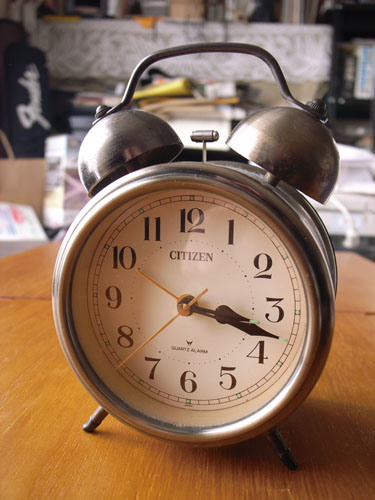
Ding Dong, the Giftee’s Dead
Scheuber: When it comes to gift giving etiquette, there are a few faux pas to be aware of. Clocks are one of them. The phrase “to give a clock” in Chinese sounds like “to pay one’s last respects.” White or yellow chrysanthemums are also associated with funerals and should be avoided. Similarly, knives, scissors, and anything sharp should not be given as gifts because they symbolize the severing of your relationship.
Zhao: I know someone who knows that you shouldn’t give sharp objects as presents but always likes to give people a really nice cooking knife. She always makes a joke of it and asks them to give her RMB 1 in return, so technically it’s not a gift.
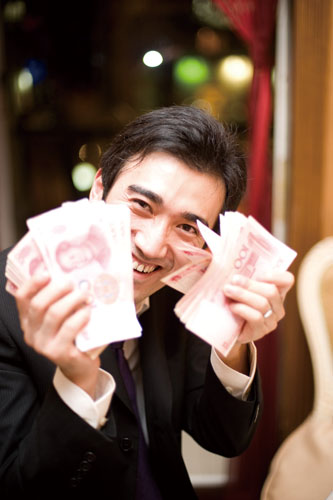
Check Yourself
Zhao: Generally, if you suggest dinner in China that means you’re paying. If not, this would be arranged beforehand. Chinese call splitting the bill “AA” (AA制). While this is becoming more common among young people, it can still cause awkwardness. The best way to avoid this is to make sure that everyone knows who will be paying before the meal. In many restaurants, I’ve seen grown men almost coming to blows and fighting to get to the waitress first so they can pay the bill.
This article originally appeared in the beijingkids Home & Relocation Guide 2014. To get your free copy, email distribution@truerun.com or view it online at Issuu.



